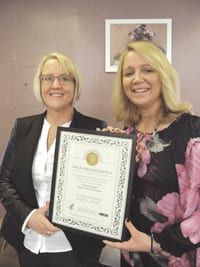Doctors Should Respect Boundaries
When it comes to professional boundaries, doctors are probably held to a higher standard than other professionals. This is largely because of the significant ‘power differential’ between physicians and patients. Physicians have the knowledge and capacity to diagnose, support, and treat, while patients rely upon the physician to bring them relief in vulnerable moments.
A patient’s reliance on a physician for bodily well-being creates a unique dynamic. The doctor’s license to ask intimate questions, learn about a patient’s habits, and even touch the patient makes it incumbent upon the physician to protect this trusted relationship in all interactions with the patient.
Even when a patient has similar education, employment status, or social interests as the doctor, the power differential remains.
Professional boundaries between physicians and patients extend beyond predatory behavior or sexual interactions. Boundaries must be considered in any interaction where a physician might be perceived to have personal interests that conflict with those of the patient or where a physician’s actions might fall outside the realm of behavior that would instill public confidence in the physician.
For example, a physician may determine in the course of conversation that a patient is seeking investment opportunities. The same physician may need a loan. If the physician borrows money from the patient, even with the proviso that he or she will pay it back with interest, he or she is engaging in a transaction that has the appearance of and/or capacity for taking advantage of the power disparity. This type of transaction would constitute a professional-boundary violation that could become the basis for professional discipline.
Likewise, a violation of professional boundaries can occur if a physician meets with a patient in an unprofessional setting. Even if the doctor is doing this as a convenience to the patient, there is potential for such an interaction to be viewed as unprofessional and contrary to the expected deference that a physician must give to the doctor-patient relationship. Accordingly, meeting a patient in a coffee shop to provide medical advice, care, or even a prescription would create professional boundary concerns.
The Mass. Board of Registration in Medicine has repeatedly disciplined physicians for “conduct that undermines public confidence in the integrity of the medical profession.” So, even if an interaction is intended to benefit a patient, if the action falls outside of the scope of the formal doctor-patient relationship, it could undermine the relationship generally and cast aspersions on the profession as a whole. Therefore, physicians must always be mindful not only of how they act with their patients, but also of how their actions could be viewed by others.
Along with the privilege of practicing medicine comes the responsibility of understanding the influence doctors have over patients. Maintaining clear, professional boundaries respects the unique status afforded the medical profession within the community at large. –
Dr. Edward J. Khantzian is president and chair of the board of directors of Physician Health Services, a nonprofit corporation founded by the Mass. Medical Society that provides confidential consultation and support to physicians, residents, and medical students facing a variety of health concerns; (781) 434-7404;www.physicianhealth.org



Comments are closed.